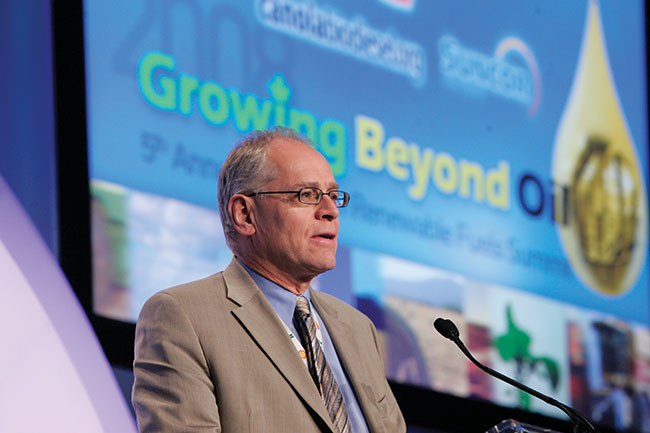
In-Depth
Opinion: Canada is ill prepared for the bio revolution
October 18, 2023
By Jeff Passmore


“The world is on the cusp of an industrial revolution fueled by biotechnology and biomanufacturing. Emerging biological technologies are and will continue to transform the foundation of our physical world – everything from clothing, to plastics, to fuels, to concrete. Through biomanufacturing, sustainable biomass across the United States can be converted into new products and provide an alternative to petroleum-based production for chemicals, medicines, fuels, materials, and more.”
This is a quote from Bold Goals for U.S. Biotechnology and Biomanufacturing from the White House Office of Science and Technology Policy.
Not convinced? Think I’m overstating the case? Read this quote from U.S. President Joe Biden’s office in a September 2022 Executive Order:
“It is the policy of my Administration to coordinate a whole-of-government approach to advance biotechnology and biomanufacturing. Central to this policy and its outcomes are principles of equity, ethics, safety, and security that enable access to technologies, processes, and products in a manner that benefits all Americans and the global community and that maintains United States technological leadership and economic competitiveness. It is the policy of my Administration to…improve and expand domestic biomanufacturing production capacity and processes…boost sustainable biomass production and create climate-smart incentives for American agricultural producers and forest landowners.”
While more than 60 countries in the world have national bioeconomy strategies. Canada is not among them. With 348 million hectares of forests (nine per cent of the world’s), 60 million hectares of agriculture land, many municipalities that no longer permit the landfilling of organic waste, and countless opportunities for biomass district energy, this is completely counter intuitive.
Fair enough, Canada produces a few million litres of first-generation ethanol and biodiesel, generates some heat and electricity from biomass combustion, and has several beautiful tall wood buildings. But what about producing (and exporting) paints, diapers, laundry detergent, industrial cleaners, personal care products and some 16,000 other items independently certified to be made in whole or in part from biomass as listed in the U.S. Department of Agriculture’s BioPreferred Program? What about maximizing the value-add by making use of the whole tree?
Yes, I understand that Natural Resources Canada and Agriculture Canada are working on some form of national bioeconomy initiative. And the Canadian Council of Forest Ministers works on a forest bioeconomy framework that identifies a number of “challenges’ from fibre supply, to regulatory and policy alignment across governments, to government procurement (hello), to communicating the benefits of the bioeconomy to a sceptical public. All fine. But we need to move much further and faster and include not only forestry, but municipal solid waste, district energy, and agriculture.
This lack of national focus on the bioeconomy means Canada will import bio-based products and export jobs.
With an annual global industrial bioeconomy market of US$2 trillion, Canada should capture 10 per cent, representing a $200 billion/year domestic industry that could export bio-based materials to a world hungry for low carbon solutions.
And in developing our strategy, let’s not re-invent the wheel. The policy issues are the same world wide – enabling market access and project finance through stable and certain government policy. There is no need for a made-in-Canada bio-based strategy. So borrow from the Americans, the British, the Europeans, and the Costa Ricans.
I can’t say it better than McKinsey in The Bio Revolution: Innovations transforming economies, societies, and our lives:
“Canadian stakeholders and contributors need to inform themselves about the Bio Revolution. Innovators, businesses, governments, and citizens need to become bioliterate in order to respond effectively to ongoing bio innovation, weighing risk against reward. The choices they make will influence the size and scope of the Bio Revolution’s benefits for economies, societies, and the planet.”
Sorry to sound like a broken record. But Canada is nowhere near there yet.
Jeff Passmore is the founding chair of Scaling Up, Canada’s annual industrial bioeconomy business conference to be held Nov 6-8, 2023 at the Chateau Laurier Hotel in Ottawa. www.scalingupconference.ca.
Print this page